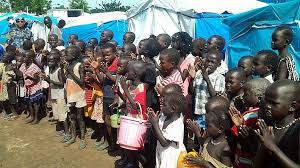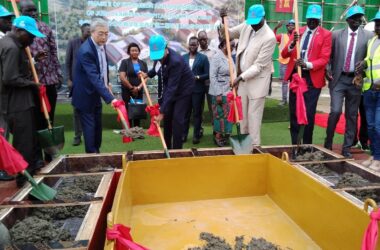By Gladys Fred Kole
Floods and a lack of adequate sewage systems in Malakal resettlement camp for refugees and returnees from Sudan poses a grave danger to thousands of the displaced children.
Save the Children, in a press statement seen by No. 1 Citizen Daily Newspaper on Monday warned of fatal cholera outbreaks in the camp, if measures are no taken to mitigate the situation.
Cases of cholera have already been reported in the camps and further down the Nile, where many of the refugees and returnees from Sudan are resettled after crossing the border.
According to humanitarian agencies, children and families continue to flock into South Sudan, fleeing continuing violence and instability in Sudan.
Muzamil Sebi, Save the Children’s Director of Advocacy, Campaigns, Communication, and Media in South Sudan, after visiting Renk two weeks ago, painted a worrying picture on the ground.
He said, “The people in the transit centers and resettling camps are dying because of the limited or lack of access to medical care and exposure to the elements.”
Muzamil added that now that it is raining, the facilities are reaching their breaking point; poor sanitation and overcrowding in particular are serious issues.
He further expressed that in the past two weeks the children were exposed to the dangerous scorching sun as the temperatures reached 45 degrees Celsius in Renk.
He noted that in the coming weeks, people will be at risk of pneumonia and cholera due to rains, adding that their few remaining belongings risk being washed away by flood.
“This is a stark example of how the world’s most vulnerable children are impacted by extreme weather events that are being amplified by the climate crisis,” he echoed.
“Children are most vulnerable to these diseases, and without additional medical supplies, thousands are at risk of dying in the coming weeks.”
Meanwhile, Pornpun Jib Rabiltossaporn, Save the Children’s Country Director in South Sudan, decries the lack of funding to abate the dire situation.
He said that cuts to international funding have had a devastating impact across South Sudan.
“We have been fortunate to be able to respond to the needs of newly displaced people from Sudan so far, but without new funds, there is no telling how long this support will last,” Pornpun said.
With the crisis in Sudan showing no sign of abating, Pornpun said support will be needed for weeks and months to come as people continue to come across the border.
“More international support is urgently needed to enable us not only to respond to new crisis but also continue to support people affected by ongoing hunger crisis across the country,” he said.
He stressed that no one must be left behind.
Since fighting began in Sudan in mid-April, more than 1.9 million people have been displaced, including close to 500,000 who have sought safety in neighboring countries.
More than 90,000 of them—nearly 1 in 5—have reached South Sudan, making the country the third largest host of displaced people from Sudan after Egypt and Chad.
At the same time, South Sudan is already facing a full-blown humanitarian emergency, with more than 9.4 million people, or 76% of the population, needing humanitarian assistance, according to aid agencies.
Despite this, South Sudan is one of the world’s most underfunded crises. In June 2022, the World Food Program was forced to suspend food assistance due to a lack of funding.




